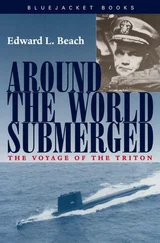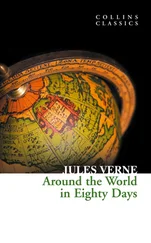Марк Твен - Following the Equator - A Journey Around the World
Здесь есть возможность читать онлайн «Марк Твен - Following the Equator - A Journey Around the World» — ознакомительный отрывок электронной книги совершенно бесплатно, а после прочтения отрывка купить полную версию. В некоторых случаях можно слушать аудио, скачать через торрент в формате fb2 и присутствует краткое содержание. Жанр: foreign_antique, foreign_prose, Путешествия и география, на английском языке. Описание произведения, (предисловие) а так же отзывы посетителей доступны на портале библиотеки ЛибКат.
- Название:Following the Equator: A Journey Around the World
- Автор:
- Жанр:
- Год:неизвестен
- ISBN:нет данных
- Рейтинг книги:4 / 5. Голосов: 1
-
Избранное:Добавить в избранное
- Отзывы:
-
Ваша оценка:
- 80
- 1
- 2
- 3
- 4
- 5
Following the Equator: A Journey Around the World: краткое содержание, описание и аннотация
Предлагаем к чтению аннотацию, описание, краткое содержание или предисловие (зависит от того, что написал сам автор книги «Following the Equator: A Journey Around the World»). Если вы не нашли необходимую информацию о книге — напишите в комментариях, мы постараемся отыскать её.
Following the Equator: A Journey Around the World — читать онлайн ознакомительный отрывок
Ниже представлен текст книги, разбитый по страницам. Система сохранения места последней прочитанной страницы, позволяет с удобством читать онлайн бесплатно книгу «Following the Equator: A Journey Around the World», без необходимости каждый раз заново искать на чём Вы остановились. Поставьте закладку, и сможете в любой момент перейти на страницу, на которой закончили чтение.
Интервал:
Закладка:
– Pudd’nhead Wilson’s New Calendar.
Sailed from Honolulu. – From diary:
Sept. 2. Flocks of flying fish-slim, shapely, graceful, and intensely white. With the sun on them they look like a flight of silver fruit-knives. They are able to fly a hundred yards.
Sept. 3. In 9 deg. 50’ north latitude, at breakfast. Approaching the equator on a long slant. Those of us who have never seen the equator are a good deal excited. I think I would rather see it than any other thing in the world. We entered the “doldrums” last night – variable winds, bursts of rain, intervals of calm, with chopping seas and a wobbly and drunken motion to the ship – a condition of things findable in other regions sometimes, but present in the doldrums always. The globe-girdling belt called the doldrums is 20 degrees wide, and the thread called the equator lies along the middle of it.
Sept. 4. Total eclipse of the moon last night. At 7.30 it began to go off. At total – or about that – it was like a rich rosy cloud with a tumbled surface framed in the circle and projecting from it – a bulge of strawberry-ice, so to speak. At half-eclipse the moon was like a gilded acorn in its cup.
Sept. 5. Closing in on the equator this noon. A sailor explained to a young girl that the ship’s speed is poor because we are climbing up the bulge toward the center of the globe; but that when we should once get over, at the equator, and start down-hill, we should fly. When she asked him the other day what the fore-yard was, he said it was the front yard, the open area in the front end of the ship. That man has a good deal of learning stored up, and the girl is likely to get it all.
Afternoon. Crossed the equator. In the distance it looked like a blue ribbon stretched across the ocean. Several passengers kodak’d it. We had no fool ceremonies, no fantastics, no horse play. All that sort of thing has gone out. In old times a sailor, dressed as Neptune, used to come in over the bows, with his suite, and lather up and shave everybody who was crossing the equator for the first time, and then cleanse these unfortunates by swinging them from the yard-arm and ducking them three times in the sea. This was considered funny. Nobody knows why. No, that is not true. We do know why. Such a thing could never be funny on land; no part of the old-time grotesque performances gotten up on shipboard to celebrate the passage of the line could ever be funny on shore – they would seem dreary and witless to shore people. But the shore people would change their minds about it at sea, on a long voyage. On such a voyage, with its eternal monotonies, people’s intellects deteriorate; the owners of the intellects soon reach a point where they almost seem to prefer childish things to things of a maturer degree. One is often surprised at the juvenilities which grown people indulge in at sea, and the interest they take in them, and the consuming enjoyment they get out of them. This is on long voyages only. The mind gradually becomes inert, dull, blunted; it loses its accustomed interest in intellectual things; nothing but horse-play can rouse it, nothing but wild and foolish grotesqueries can entertain it. On short voyages it makes no such exposure of itself; it hasn’t time to slump down to this sorrowful level.
The short-voyage passenger gets his chief physical exercise out of “horse-billiards” – shovel-board. It is a good game. We play it in this ship. A quartermaster chalks off a diagram like this-on the deck.
The player uses a cue that is like a broom-handle with a quarter-moon of wood fastened to the end of it. With this he shoves wooden disks the size of a saucer – he gives the disk a vigorous shove and sends it fifteen or twenty feet along the deck and lands it in one of the squares if he can. If it stays there till the inning is played out, it will count as many points in the game as the figure in the square it has stopped in represents. The adversary plays to knock that disk out and leave his own in its place – particularly if it rests upon the 9 or 10 or some other of the high numbers; but if it rests in the “10off” he backs it up – lands his disk behind it a foot or two, to make it difficult for its owner to knock it out of that damaging place and improve his record. When the inning is played out it may be found that each adversary has placed his four disks where they count; it may be found that some of them are touching chalk lines and not counting; and very often it will be found that there has been a general wreckage, and that not a disk has been left within the diagram. Anyway, the result is recorded, whatever it is, and the game goes on. The game is 100 points, and it takes from twenty minutes to forty to play it, according to luck and the condition of the sea. It is an exciting game, and the crowd of spectators furnish abundance of applause for fortunate shots and plenty of laughter for the other kind. It is a game of skill, but at the same time the uneasy motion of the ship is constantly interfering with skill; this makes it a chancy game, and the element of luck comes largely in.
We had a couple of grand tournaments, to determine who should be “Champion of the Pacific”; they included among the participants nearly all the passengers, of both sexes, and the officers of the ship, and they afforded many days of stupendous interest and excitement, and murderous exercise – for horse-billiards is a physically violent game.
The figures in the following record of some of the closing games in the first tournament will show, better than any description, how very chancy the game is. The losers here represented had all been winners in the previous games of the series, some of them by fine majorities:

And so on; until but three couples of winners were left. Then I beat my man, young Smith beat his man, and Thomas beat his. This reduced the combatants to three. Smith and I took the deck, and I led off. At the close of the first inning I was 10 worse than nothing and Smith had scored 7. The luck continued against me. When I was 57, Smith was 97 – within 3 of out. The luck changed then. He picked up a 10-off or so, and couldn’t recover. I beat him.
The next game would end tournament No. 1.
Mr. Thomas and I were the contestants. He won the lead and went to the bat – so to speak. And there he stood, with the crotch of his cue resting against his disk while the ship rose slowly up, sank slowly down, rose again, sank again. She never seemed to rise to suit him exactly. She started up once more; and when she was nearly ready for the turn, he let drive and landed his disk just within the left-hand end of the 10. (Applause). The umpire proclaimed “a good 10,” and the game-keeper set it down. I played: my disk grazed the edge of Mr. Thomas’s disk, and went out of the diagram. (No applause.)
Mr. Thomas played again – and landed his second disk alongside of the first, and almost touching its right-hand side. “Good 10.” (Great applause.)
I played, and missed both of them. (No applause.)
Mr. Thomas delivered his third shot and landed his disk just at the right of the other two. “ Good 10.” (Immense applause.)
There they lay, side by side, the three in a row. It did not seem possible that anybody could miss them. Still I did it. (Immense silence.)
Mr. Thomas played his last disk. It seems incredible, but he actually landed that disk alongside of the others, and just to the right of them-a straight solid row of 4 disks. (Tumultuous and long-continued applause.)
Then I played my last disk. Again it did not seem possible that anybody could miss that row – a row which would have been 14 inches long if the disks had been clamped together; whereas, with the spaces separating them they made a longer row than that. But I did it. It may be that I was getting nervous.
Читать дальшеИнтервал:
Закладка:
Похожие книги на «Following the Equator: A Journey Around the World»
Представляем Вашему вниманию похожие книги на «Following the Equator: A Journey Around the World» списком для выбора. Мы отобрали схожую по названию и смыслу литературу в надежде предоставить читателям больше вариантов отыскать новые, интересные, ещё непрочитанные произведения.
Обсуждение, отзывы о книге «Following the Equator: A Journey Around the World» и просто собственные мнения читателей. Оставьте ваши комментарии, напишите, что Вы думаете о произведении, его смысле или главных героях. Укажите что конкретно понравилось, а что нет, и почему Вы так считаете.












